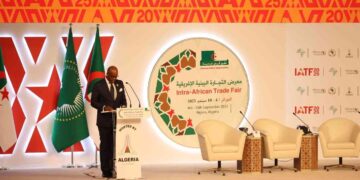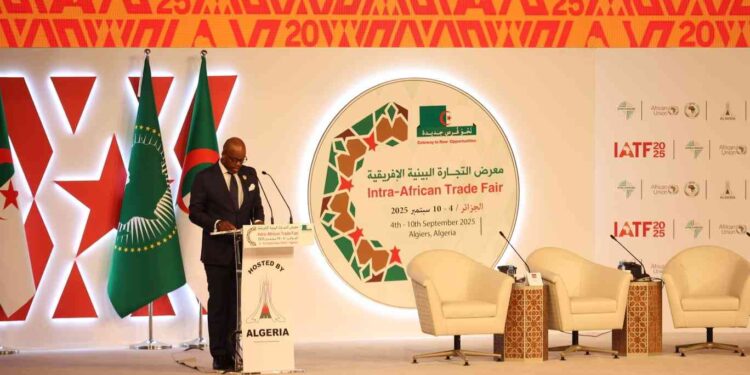By Emmanuel Nduka Obisue
African countries must fast-track the implementation of the African Continental Free Trade Area (AfCFTA) to withstand global trade upheavals, the bloc’s chief, Wamkele Mene, has urged.
Speaking at the opening of the Intra-African Trade Fair (IATF2025) in Algiers on Thursday, the AfCFTA Secretariat executive secretary said the shifting global trade landscape demands urgent collective action from Africa.
“The current global context, with its uncertainties and shifting trade patterns, reminds us that Africa must act with unity and urgency,” Mene said. “To build resilience and safeguard our collective interests, we must accelerate implementation of the AfCFTA,” he added.
AfCFTA, the world’s largest trading bloc, has been described as Africa’s “Marshall Plan,” with a World Bank report projecting it could lift 50 million people out of poverty by 2025. If fully implemented with harmonised rules for investment and competition, it could raise regional incomes by up to 9%, or US$571 billion.
Mene noted that the pact is already showing results. Intra-African trade jumped 12.4% in 2024 to US$220.3 billion, according to Afreximbank’s African Trade Report 2025. “This recovery underscores growing confidence in Africa’s integration model under the AfCFTA,” he said.
He added that trade data reflects a gradual shift from raw commodity exports toward higher-value goods. “While primary commodities still dominate, there is a clear growth in machinery, motor vehicles, food products, chemicals, and electronics. This shift signals our continent’s transition from raw commodity dependency toward industrial diversification, a shift that will only be sustained by stronger logistics and manufacturing value chains”.
Mene also outlined key steps already taken to cement a single continental market, including adoption of eight protocols and operational tools such as rules of origin, the e-Certificate of Origin, the Pan-African Payment and Settlement System, and the AfCFTA Adjustment Fund.
On the digital front, he stressed the importance of the Digital Trade Protocol. “It opens new avenues for e-commerce, fintech, and ICT-enabled services. If harnessed fully, it can generate millions of jobs for Africa’s young people and ensure the continent is not left behind in the global digital economy,” Mene said.




































